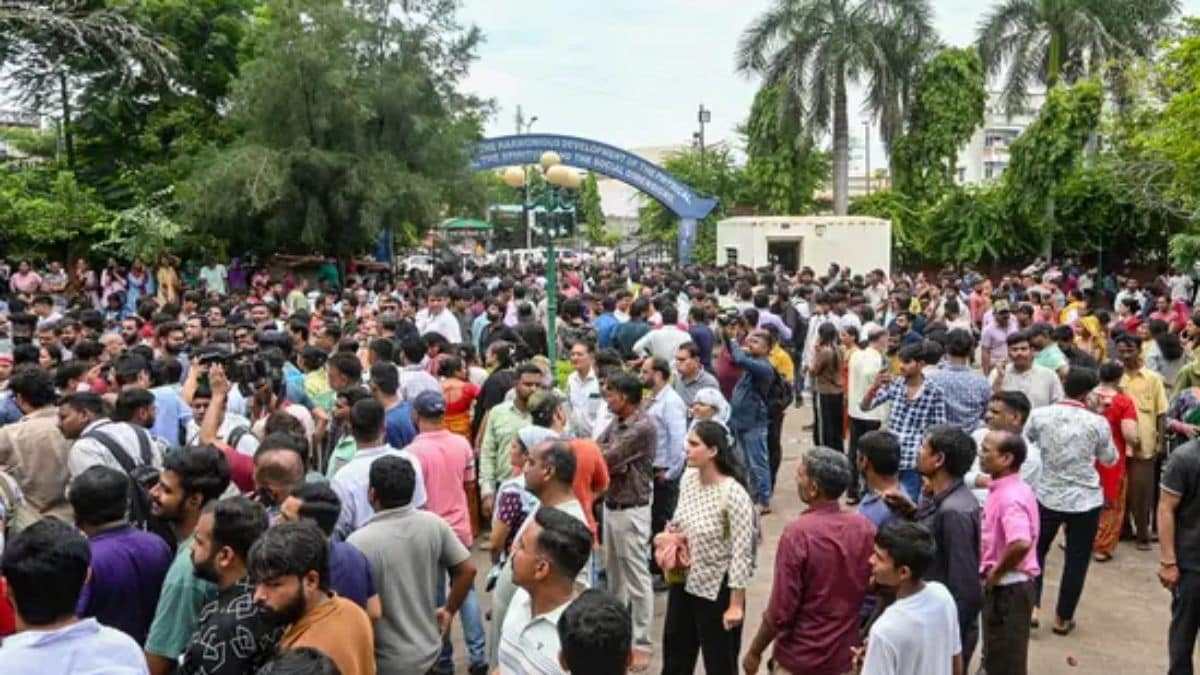

The recent stabbing of a Class 10 student by a Class 8 student in Ahmedabad, Gujarat, has ignited widespread outrage and raised serious concerns about school safety and juvenile crime. The incident, which occurred outside the Seventh-Day Adventist Higher Secondary School, has led to violent protests, property damage, and demands for stricter disciplinary measures. Adding to the shock, a chilling Instagram chat has surfaced, purportedly showing the accused confessing to the crime with a disturbing lack of remorse.
On Tuesday afternoon, as the school day ended, Nayan Santani, a Class 10 student, was attacked by a group of junior students, one of whom was from Class 8. A verbal altercation quickly escalated, and the Class 8 student allegedly stabbed Nayan with a knife. CCTV footage captured Nayan stumbling back into the school with a stab wound to his stomach before being rushed to a private hospital, where he died early Wednesday morning.
The alleged conversation between the accused and his friend on Instagram reveals a disturbing attitude towards the crime. In the chat, the friend questions the accused about the incident, and the accused admits to stabbing someone. When the friend expresses shock and suggests that he could have just beaten Nayan instead of killing him, the accused replies dismissively, "Whatever happened has happened now". The friend then advises him to go "underground" and delete the chats. The accused's response, "Ok," further underscores the lack of remorse and understanding of the gravity of his actions. When asked about the reason for the attack, the accused stated that Nayan had dared him.
The incident has sparked massive protests in Ahmedabad, with parents and community members demanding stricter action against the school. Demonstrators have vandalized school property and assaulted staff members, alleging negligence on the part of the school administration. Parents have claimed that the school has been lax in addressing previous instances of harassment, possession of weapons, and inappropriate behavior. They allege that the school administration often dismisses these cases by taking written apologies from students without implementing strict disciplinary measures. The District Education Officer (DEO) has submitted a report to the state government highlighting the "negligence" on the school management's part, noting that the school did not inform the DEO office after the incident and allegedly did not attempt to provide medical support to the stabbed student.
This tragic event has ignited a debate about school safety, juvenile crime, and the role of authorities in enforcing discipline. It also raises concerns about the psychological factors that may have contributed to the accused's actions. Juvenile delinquency is a complex issue with roots in psychological, social, and economic factors. Factors such as family dysfunction, poverty, lack of access to education and healthcare, exposure to violence, and peer pressure can all contribute to a child's involvement in criminal activities. Mental health issues, such as depression, anxiety, and conduct disorders, are also frequently observed among juvenile offenders.
Some studies suggest a link between violent video games and aggressive behavior, particularly in children. However, other research indicates no significant relationship between violent video game exposure and adolescent aggression. It's important to consider that aggressive behavior is complex and can be influenced by a combination of factors, including individual personality traits, family environment, and social influences.
The Ahmedabad stabbing case serves as a stark reminder of the need for a multi-faceted approach to address juvenile crime. This includes creating safer school environments, providing mental health support to students, addressing socio-economic factors that contribute to delinquency, and promoting responsible behavior. It is also crucial to ensure that juvenile offenders receive appropriate rehabilitation and reintegration support to prevent future offenses.